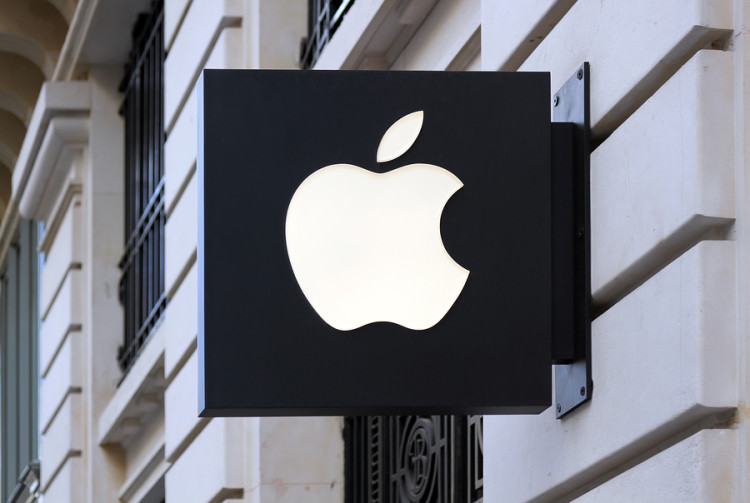Apple Music Underperforms Potential: Leonid Bershidsky

©2016 Bloomberg View
O0SZPN6KLVRF
(Bloomberg View) — Apple’s streaming music service now has more than 10 million subscribers, according to a report in the Financial Times. That sounds like a lot, but what it really indicates is that Apple may have lost its way.
QuickTakeApple
Apple Music debuted at the end of June 2015. That means it passed the 10 million mark in less than six months. Spotify. its main rival, took six years to do it. Of the 10 million, 3.5 million apparently have been added since mid-October, when Apple announced it had 6.5 million subscribers paying at least $10 a month (there’s also a more expensive “family subscription”).
Great tempo, right? Well, maybe not.
The application was pushed to all iPhone, iPad and iPod Touch users as part of an operating system update. It was easy to activate the three-month free trial, after which Apple would start charging the user’s account. Someone with an Apple ID (which is necessary to download apps) wouldn’t even need to enter payment details. At the end of September 2015, according to Consumer Intelligence Research Partners, 101 million iPhones were in use in the U.S. alone. There are hundreds of millions of other iOS devices in other countries, and seven new iPhones are sold every second, based on data for the 2015 financial year. An overwhelming majority of these devices have Apple Music installed: Apple prides itself that its users keep their operating system up to date.
Given the huge installed base and the ease of subscribing, 10 million subscribers seems underwhelming.
By contrast, a user needs to make a conscious decision to download Spotify. Even so, the Swedish-designed streaming app, which Apple Music set out to displace as market leader, appears to be growing fast. Spotify had 15 million paying subscribers at the end of 2014 and 20 million in early June. Dante D’Orazio at the Verge reported that Spotify experienced “the fastest subscriber growth” its in history in the past six months, which means that it added more than 5 million while Apple Music was active. That’s impressive, given that it wasn’t growing from scratch and wasn’t preinstalled.
To be sure, Spotify has suffered from the competition — but not enough to cause serious worry. Here’s how Spotify’s downloads on Apple’s App Store have evolved since Apple Music began:
In the Google Play store, where Android users get their apps, Spotify’s performance hasn’t changed since Nov. 10, when Apple Music became available on the platform. Apple Music hasn’t been doing well on Android, where it isn’t preinstalled: According to App Annie, it has languished recently around 70th place by number of downloads, while Spotify is consistently near the top (it is ranked 12th in the U.S. now).
In Apple’s U.S. App Store, Spotify is the top-grossing app in the music category and the fourth overall.
So it appears that even Apple’s user base often prefers the market leader to the upstart “native” offering. They have good reasons for that choice. One is bugs: Apple Music was rushed to market with a few frustrating ones that it has struggled to fix. The nastiest was one that made downloaded songs in a user’s iTunes library unavailable. A report from November, more than three months after launch, described the writer’s suffering at only being able to listen to one song — “X” by the rapper Xzibit. Not everyone was as unlucky, and it was possible to get around the problem (mostly), but the bugs were unworthy of the world’s biggest company attacking a strong incumbent in a new market.
Apple also has been criticized for nonintuitive, overcomplicated design — a complaint the company isn’t used to hearing — and a lack of some features experienced Spotify users value, such as the ability to create and share playlists easily.
Apple’s previous forays into new markets usually were better prepared and more effective. The iPod and the iPhone redefined their product categories, the iPad created a new one, and even the relatively unsuccessful Apple Watch became the best-selling smartwatch in the world within its first six months. Apple Music could have trashed Sportify on iPhones just as quickly, thanks to its platform advantage, but failed to do so because the app wasn’t demonstrably better.
Sure, Apple Music has some exclusives, such as a recent Taylor Swift concert documentary. That, however, is not enough to induce most users to switch or to shell out $10 for a second streaming music subscription.
I tried Apple Music and remained loyal to my streaming service — Paris-based Deezer, which has a much more satisfying selection of non-English language music.
Of course, even with 10 million users. Apple Music will provide the company with $1.2 billion in annual revenue. That is dwarfed, however, by Apple’s projected revenue of $239 billion for 2016, but it’s not good enough for a company with such a huge cult following and a near-captive audience of hundreds of millions of people.
Underwhelming product launches have become acceptable at Apple. I have little doubt that the company is not breaking out Apple Watch numbers to avoid disappointment, and it’s likely that Apple Music numbers won’t be broken out in the next quarterly report, either. Apple’s enormous revenue and profit have silenced critics for years, creating the impression that past successes and geographical expansion could carry the company forward forever. That is an illusion. Apple’s management needs to pay special attention to the pace and quality of innovation before the numbers reflect what appears to be a slump in ideas and design.
This column does not necessarily reflect the opinion of the editorial board or Bloomberg LP and its owners.
To contact the author of this story: Leonid Bershidsky at lbershidsky@bloomberg.net To contact the editor responsible for this story: Max Berley at mberley@bloomberg.net
For more columns from Bloomberg View, visit http://www.bloomberg.com/view



No Comment